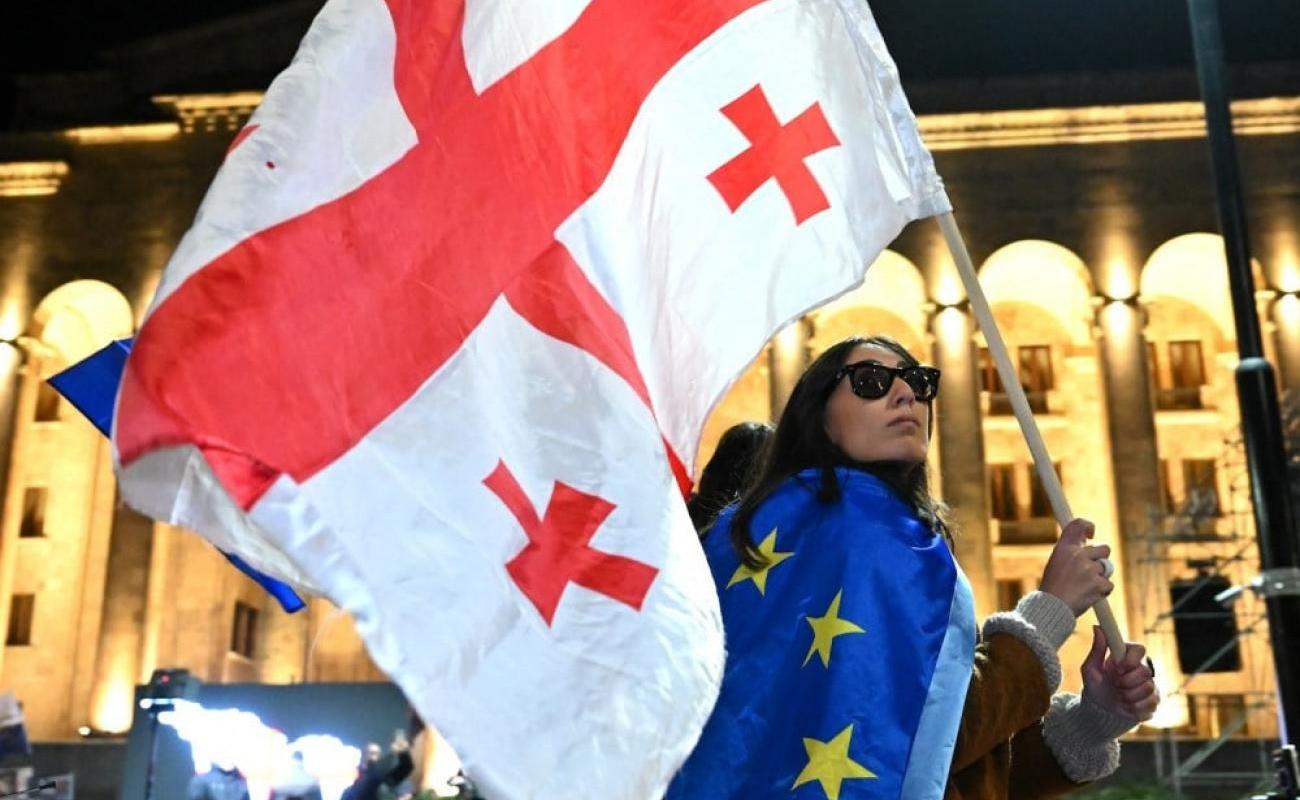Georgia’s Contested Elections: What’s Next?

Georgia’s pivotal 2024 elections, fraught with allegations of fraud, have plunged the country into political crisis and cast deep uncertainty over its European aspirations.
On 26 October 2024, more than two million Georgian citizens went to the polls. Many voters regarded the parliamentary elections as existentially important for the country’s future. For the first time ever, Georgia’s elections were seen as a process that would determine its foreign policy trajectory either as pro-Western or pro-Russian.
Throughout the past three decades, elections have never been a quiet and predictable process in Georgia. In most cases, they have marked the beginning of instability and high political tensions. Yet, there was also the 2012 experience, when Georgia surprised the world with its peaceful and democratic transition of power when an increasingly authoritarian President Mikheil Saakashvili accepted the defeat of his party by Georgian Dream. Opposition-minded voters have hoped that history would repeat itself, yet instead it looks like Georgia is braced for a prolonged period of political crisis and uncertainty.
Contested Results
Moments after the polling stations closed, two independent polling organisations predicted the collective victory of four opposition parties over Georgian Dream. Soon, the official election results showed a completely different picture: a landslide victory for the ruling party with nearly 54% of the votes, which equates to more than million voters casting their ballots in favour of them.
According to the official results, Georgian Dream, which has recently introduced a number of divisive laws, stalled the EU integration process and threatened to ban opposition parties, gained nearly the same amount of votes as in 2012 when it was at the peak of its popularity. This result was deeply shocking to opposition-minded voters. While all sides waited for the final verdict by the joint International Election Observation Mission led by the OSCE Office for Democratic Institutions and Human Rights (OSCE/ODIHR) in Europe, the president of Georgia, Salome Zourabichvili, denounced the election results as illegitimate and urged citizens to protest against major electoral fraud conducted by the ruling party. All four opposition parties joined the president and declined their parliamentary mandates.
The opposition's strategy to place such a heavy focus on Georgia’s European future in the electoral campaign had its benefits but also contained risks
The crucial importance of the 2024 elections was already obvious earlier in the year when the Georgian Dream government introduced the highly divisive so-called foreign agents law despite popular protests against it. The law’s passing was a watershed moment that threw Georgia’s European future into question and fast-tracked Tbilisi’s alienation from longstanding strategic partners including the US and EU countries. It has also made it harder for Georgian Dream to make the case that it is still committed to the country’s European aspirations. Yet, allegations of large-scale electoral fraud as well as multiple cases of violations that were recorded by election observers indicate that not only Georgia’s European future but also its fragile democracy might be threatened to a whole new extent.
EU Membership with a Twist
Ahead of the elections, the foreign agents law and popular outrage against it gave a competitive advantage to an opposition that prior to that was largely seen as fragmented and weak. Despite political differences, the opposition managed to more or less unite into different coalition groups and provide the voters with at least four different choices. Although the main opposition parties have very different and in some cases controversial political backgrounds, the four groups managed to brand themselves as a pro-European opposition which promised to return the country into the European orbit and to unfreeze Georgia’s EU integration process.
The strategy to place such a heavy focus on Georgia’s European future in the electoral campaign had its benefits but also contained risks. While a large majority of Georgian citizens (86
The EU gives EUR 288 million for Serbian farmers 19.11.2024.
More Russians denounce each other over Ukraine, in echo of Soviet era 18.11.2024.
Georgia’s Contested Elections: What’s Next? 18.11.2024.
OPINION: Expediting Prisoner of War Exchanges 18.11.2024.
EBRD and EU support green and sustainable transition in Bosnia and Herzegovina 18.11.2024.
Western Balkans II Project 18.11.2024.
Steel silence: It's a long way to the highway 17.11.2024.
Reconstruction begins at the "Steve Naumov" student dormitory 17.11.2024.
How Children in Occupied Ukraine are Being Re-Educated as Russians 17.11.2024.
Russian disinformation is growing in Germany
